Supplements, Natural Remedies for Your Health
Blue indicates link
Supplements and Natural remedies are alternatives I always consider. On a personal note, I used to be on several prescription medications, but the side effects were not welcome.
In most prescription medication is necessary and you should always follow your doctor’s recommendations.
Protecting yourself and maintaining a healthy immune system:
A lot of drugs prescribed for more common autoimmune issues are known to have devastating long-term effects. Many of these drugs inhibit the immune system in order to stop inflammation, rather than deal with the root cause of the immune system fighting itself, whether that is toxins, allergies, leaky gut, or another source of inflammation.
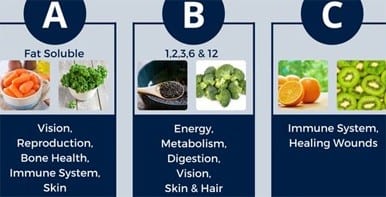
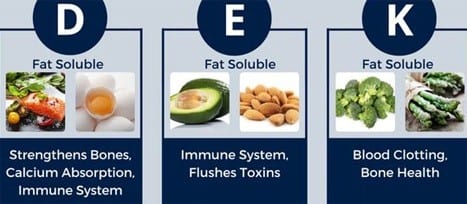
Alternatives to consider:
Vitamin K
The benefits of Vitamin K include supporting:
Heart health
Vascular health
Bone density
Brain function
Healthy metabolism
Insulin sensitivity
In addition, the evidence is growing that Vitamin K has anti-inflammatory actions that are separate from its better-known roles in supporting bone health and blood clotting. In fact, Vitamin K has demonstrated the ability to reduce inflammation and aging effects.
Vitamin K also protects your brain from free radical damage and the resulting oxidative stress. This damage is recognized as being a key to inflammation in general, and also as being present in the development of both Alzheimer’s and Parkinson’s. The medical community is moving towards seeing both these diseases as autoimmune disorders.
Of note is a 2008 study that found consistently low intake of Vitamin K in people diagnosed with early-stage Alzheimer’s. That is of great concern, especially when you realize an estimated 80 percent of Americans are deficient in this vital compound.
Unfortunately, it is easy to be deficient in Vitamin K if you have chronic gastrointestinal disorders (especially if you have issues with absorption), take or have taken a lot of antibiotics, have poor gut health in general, or take medications for lowering cholesterol.
When looking to increase your intake of Vitamin K, through food or supplements, it is worth noting there are three types of Vitamin K: K1, K2, and K3.
K1 is derived from plants, and K2 is from fermented soy and animal products. K3 is synthetic and should be avoided, as it can have several negative effects.
K2 is the most beneficial K vitamin for avoiding deficiency.
There is a special form of K2 called MK-7 that science is finding to be even more powerful. Its composition stays in your body longer, so you benefit from smaller amounts. Potentially the most important role of Vitamin K is in helping your body absorb our next natural supplement for autoimmune disease and inflammation, Vitamin D.
VITAMIN D
The health value of this little ‘sunshine’ vitamin is greatly underestimated. Did you know that nearly all the cells in your body have a receptor specifically for Vitamin D? That’ shows how essential Vitamin D is to your body—it is used in nearly all of your cells.
Lack of Vitamin D increases your risk of hypertension, asthma, cancer, insulin resistance, and autoimmune disease (including diabetes and multiple sclerosis). It is also associated with impaired mental function in adults.
Not getting adequate Vitamin D also increases the risk of several autoimmune conditions and other health challenges.
These include:
Heart disease
Psoriasis
Osteoporosis
Estrogen or testosterone imbalances
An estimated one billion people worldwide are deficient in Vitamin D. That is high on its own. Consider then that 50 percent of the global population and 46 percent of Americans are thought to not be getting enough Vitamin D. They may not be at dangerous levels of deficiency, but their body is not efficiently using enough of this vital nutrient.
With so many people not getting enough Vitamin K, this is not surprising since little wonder Vitamin K is vital in order for your body to properly utilize Vitamin D. You see, Vitamin K activates the proteins created by Vitamin D. Those proteins ensure calcium is used correctly, including ensuring it doesn’t build up and clog your arteries. Of course, you know how important calcium is to bone health.
However, Vitamin D does more than make strong bones. It is also essential for muscle function, a strong immune system, cell growth, and protection from inflammation. Some exciting studies are even showing Vitamin D also helps with insulin resistance—a core component to several of the most frustrating autoimmune issues.
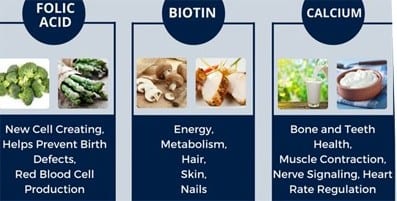
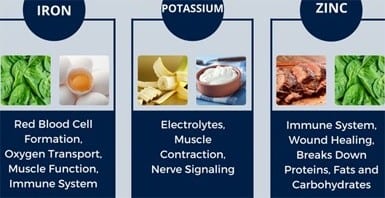
Conditions that can be indicators you are deficient in Vitamin D are:
Anxiety
Broken (or weak) bones
Chronic fatigue
Depression
Inflammation (or swelling)
Insulin resistance (or Type 2 Diabetes)
Sleeping issues
Weakened immune system
Weakness
Unfortunately, you are more at risk for Vitamin D deficiency if you already have autoimmune issues, such as Crohn’s disease, celiac disease, chronic pancreatitis, or cystic fibrosis. Other health conditions that leave you vulnerable are being obese, having limited sun exposure, having dark skin pigmentation, having fat absorption issues, a compromised immune system, or lower liver and kidney function.
CHLORELLA
Chlorella is coming into its own as a “superfood”. One of the main reasons for this is that this fresh-water, single-celled organism is a nutritional powerhouse, containing extremely high levels of iron, thiamine, riboflavin, and Vitamin A. In addition, not only is chlorella one of the rare plant sources of Vitamin B12, it is provided in a form that is highly absorbable to humans.
This is significant because Vitamin B12 deficiency has been linked to autoimmune disorders. An abstract submitted at the 2012 annual meeting of the American College of Rheumatology outlined a 6-month study of patients at a rheumatoid clinic. They looked for correlations between low levels of B12 and autoimmune markers. They found these patients had: rheumatoid arthritis, Graves’ disease, diabetes, hypogonadism, osteoarthritis, Hashimoto’s, lupus, primary Sjogren’s, primary Raynaud’s polyarticular CPPD; tophaceous gout, vasculitis, ankylosing spondylitis, and pyoderma gangrenosum.
A 2006 study published in the American Journal of the Medical Sciences had similar findings. They found that 28 percent of patients with thyroid disease had clinically low levels of Vitamin B12. Chlorella also contains proteins, omega-3, polysaccharides, and several antioxidants. Of course, omega-3 (see below) and antioxidants are well-known for their inflammation-fighting properties.
These are just two reasons why chlorella is also considered anti-inflammatory. One example of this is a 2014 study that demonstrated that chlorella increased antioxidant enzymes, and decreased enzymes associated with inflammation.
In 2016, researchers in India experimented with varying formulas and concluded chlorella could “be a potential source of developing anti-inflammatory agents and a good alternate for conventional steroidal and nonsteroidal anti-inflammatory drugs.
A 2009 human study demonstrated that not only does chlorella offer protection from the damage of free radicals and oxidative stress, but it can also repair cells and cell DNA. In fact, chlorella may help prevent dementia and Alzheimer’s. Researchers believe this is due to its highly absorbable lutein content. Alzheimer’s and dementia patients have both been observed to have “significantly lower” levels of lutein in their blood.
It is important to note that despite the findings on lutein, they did not find that supplementing with lutein alone yielded improvements. It is normally too difficult for the body to absorb in a way that is useful. Not so with chlorella, as a 2013 Japanese study reported. These researchers found the lutein from chlorella easily passed through into cells, and this in turn lowered the previously recorded markers of inflammation and damage. Their patients started out with low lutein blood levels, and after just a month, they saw the numbers increase fourfold and stay there, as long as they continued with the chlorella supplementation.
Another Japanese study published in 2009, also found tremendous value in chlorella, concluding, “These findings suggest that prolonged consumption of chlorella has the potential to prevent the progression of cognitive impairment.”
It pays to be very choosy when looking for chlorella. Organic is a must. So is a ‘broken cell’ powder. This is where the single-cell super-hard outer shell is crushed, making the intrinsic value and benefits of chlorella available to you.
OMEGA-3 (FISH OIL)
Never mind omega-6 and omega-9. There is a lot of fanfare about these but that is mainly from marketing ploys and scare tactics. Like most Americans, your diet likely contains far too many harmful omega-6s already. The problem with that is that omega-6s have been connected to inflammation. Meanwhile, far too many Americans consume inadequate levels of the essential fatty acid, omega-3. And this has repercussions on your health. An essential fatty acid means that your body must have it to function properly, you must consume it because your body cannot manufacture it. Thankfully, it is really easy to get.
There are several sources of omega-3 to choose from. Quality fish oil can definitely help you receive an abundance of anti-inflammatory and antioxidant benefits. Vegan alternatives include DHA/EPA from algae, and omega-3 from plant foods such as chia, flax, and hemp seeds.
Two of the most important benefits of omega-3 are heart and brain health. It is common knowledge now that omega-3 is vital for heart health. We need to increase awareness of how omega-3 is extremely effective at helping with mood, anxiety, and depression, and calming inflammation in both the brain and body. It actively reduces oxidative stress, cortisol, and immune response.
Good news for the brain, in particular—as a report from Harvard Medical School explained, omega-3s “can easily travel through the brain cell membrane and interact with mood-related molecules inside the brain.” But inflammation affects many systems and can lead to several autoimmune disorders, and also things like dementia and Alzheimer’s. Omega-3 has been seen to decrease plaques, associated with dementia and Alzheimer’s, which cause inflammation that blocks blood flow in the brain.
Additional benefits of supplementing with omega-3 to fight brain inflammation, include improved memory and cognitive function. In a 2002 paper, the American Journal of Nutrition noted: “There have been a number of clinical trials assessing the benefits of dietary supplementation with fish oils in several inflammatory and autoimmune diseases in humans, including rheumatoid arthritis, Crohn’s disease, ulcerative colitis, psoriasis, lupus erythematosus, multiple sclerosis, and migraine headaches. Many of the placebo-controlled trials of fish oil in chronic inflammatory diseases reveal significant benefits, including decreased disease activity and a lowered use of anti-inflammatory drugs.”
One of the most exciting studies around omega-3’s role in curbing both inflammation and autoimmune disease specifically comes from The Norwegian University of Science and Technology (NTNU). In 2017, they published an article about their extended study into the exact cellular responses to omega-3 and proved it “specifically inhibits the secretion of inflammatory factors” involved in several inflammatory and autoimmune diseases.
As mentioned above, omega-3 fish oil also helps lower cortisol levels. A small, 3-week study tested seven men. The men who took fish oil had reduced cortisol levels in response to stress. Yet another three-week study showed similar results, comparing placebo to fish oil. Participants were asked to carry out a stressful task. Those taking the fish oil had reduced cortisol levels and stress response.
TURMERIC (CURCUMIN)
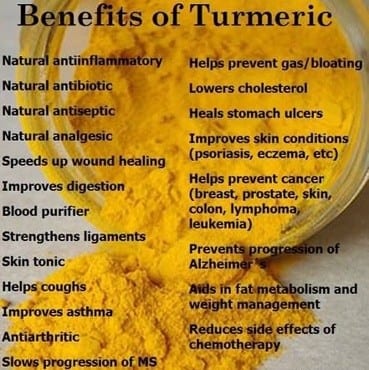
If we were to put this list of natural supplements for autoimmune and inflammation in order of effectiveness, turmeric would probably claim the number one spot. Ancient civilizations knew of its power as a medicine and their healing practices have included it as a central prescription for thousands of years. The medicinal properties of turmeric were so valued, that some believe that the gold the three wise men gifted to Jesus was actually turmeric—the “golden” spice!
Curcumin is a highly anti-inflammatory extract that comes from the turmeric root and powder. Some will use these terms interchangeably, but it is important to know the difference. If you are looking for the most direct medicinal value, you want to use a really good curcumin extract. Naturally, it’s the curcumin that science has focused on the most, in their attempts to prove what the ancients already knew—curcumin possesses powerful anti-inflammatory properties.
One of the ways it does this is by preventing the brain from receiving signals from NF-kb, a molecule that is central to an immune and cellular response.
Curcumin has actually been found to have as much anti-inflammatory effect as several popular NSAIDs, including aspirin, ibuprofen, and naproxen. A 2004 study demonstrated curcumin was as powerful as these, and other pharmaceutical anti-inflammatories, when taken in far smaller amounts. That is to say, it took less curcumin to get the same benefits.
Another example, when compared to the pain and anti-inflammatory drug diclofenac, a 2012 study showed that patients who were given curcumin showed the most improvement. As the paper published in Phytotherapy Research noted, this improvement came without adverse effects—so no negative side effects.
In comparison, diclofenac has a long list of side effects, including raised blood pressure, shortness of breath, weight gain, liver and kidney problems, and anemia… and is not safe for those with certain health conditions. Like most natural healing supplements, curcumin doesn’t usually have any adverse side effects, so it is a wonderful addition to an autoimmune and inflammation healing regimen.
This powerful anti-inflammatory has also been shown to restore cortisol balance and return adrenal glands to their normal function. Studies on mice demonstrate that curcumin decreases the energy-restricting and oxidative effects of stress. In fact, a 2015 study found that curcumin is able to both stop the death of brain cells and promote new brain-cell connections, which can become damaged due to chronic stress. Even in healthy people, a regular dose of curcumin was found beneficial.
Curcumin also has extremely high antioxidant value, which of course helps your body free itself from free radicals that are known to create inflammation and be part of autoimmune responses.
Have you heard that blueberries are full of antioxidants? Well on the scale that measures antioxidant levels in substances (ORAC), blueberries score 9621. To compare, curcumin has a whopping high score of 127,068! That is twice the antioxidant score of cocoa and triple that of broccoli. Turmeric is also something to consider for depression. A 2013 study published in the peer-reviewed journal, Physiotherapy Research, examined the effects of curcumin on depression over the leading antidepressant.
Daily doses of curcumin of 1000mg, and 20g of the pharmaceutical’s active chemical, fluoxetine were administered to participants for six weeks. This study found that not only does their work demonstrate curcumin is effective in treating depression… but that it is far safer.
A review of this study by the American Botanical Council wrote, “This study showed curcumin to have similar efficacy. The current thinking is that this ability to act as an antidepressant comes from curcumin’s effects on neurotransmitters, like serotonin. Of special note, researchers reported that high doses (up to 12g) are well-tolerated by the body, and can be taken for depression without one of the most worrying side effects of many antidepressants—suicidal thoughts and inclinations.
One important thing to note about getting the most out of turmeric (curcumin) – it can be hard to absorb. That is one reason why when cooking, combining it with healthy oils and fats is beneficial. Another trick is to harness the power of black pepper, which helps absorption. With cooking that is easy, and in supplementation, form look for a formula that contains piperine (black pepper extract), or even better, BioPerine®—a super form of piperine extract.
GINGER
Ginger and turmeric are cousins. No surprise then that this flavorful spice shares several characteristics. For one, ginger has also been a central part of ancient healing practices for thousands of years. Also in common with turmeric, ginger is proven to reduce oxidative stress and has well-known anti-inflammatory abilities.
In fact, in folk medicine, ginger has been long used to treat inflammation and conditions caused by inflammation, like autoimmune diseases. And, like Vitamin K and chlorella, scientists are finding ginger can help inflammatory conditions such as dementia and Alzheimer’s.
Also, just like its cousin turmeric, researchers are demonstrating time and again that ginger can decrease chronic inflammation. It does this by inhibiting several key factors in both the inflammatory and immune processes.
Ginger has also been observed to decrease the stress hormone, cortisol. Not surprisingly, the combination of turmeric (curcumin) and ginger has proven even more powerful than taking either alone. As with curcumin, including black pepper or the black pepper extract (BioPerine®), will improve the effectiveness and absorption of this anti-inflammatory spice.
CHROMIUM
Chromium is a mineral we require for optimal health, as it helps regulate blood sugar and insulin, as well as assists with the metabolism of protein, and carbohydrates, and even controlling cravings. The main benefits of autoimmunity and inflammation come from the assistance chromium provides in weight loss and improvements in blood sugar regulation, especially that of decreasing inflammation and oxidative stress.
Note: Chromium can interfere with medications. Consult your health professional.
By now you are likely aware of the importance that gut health plays in your quest to heal autoimmune disease and/or inflammation. But just in case, here are some important general facts:
Your gut contains trillions and trillions of organisms that are not only part of your digestive system but contribute to mood, hormone balance, and even brain function. This environment is called your microbiome. The organisms are known collectively as the microbiota.
The symbiotic balance of these organisms in your microbiome is essential to overall health but in particular a healthy immune response, and inflammation.
Probiotics are the term used for a variety of beneficial bacteria that are essential for a healthy set of microbiota and microbiome.
Prebiotics are fundamentally food for your microbiota. They usually come in the form of soluble fiber and resistant starches that encourage a healthy balance in your microbiome, by feeding the probiotics.
While many people know that getting good probiotics is important, they often overlook the value of prebiotics. Optimal health is achieved with a balance of both.
Why is this balance of probiotics and prebiotics so vital? There are so many answers to that question!
However, in the context of autoimmune disease and inflammation, here are just a few ways a balanced microbiome can help:
70 percent of your immune cells are found in your microbiome.
Your microbiota is at the core of your immune response, and thus at the center of any deviation from a healthy response, such as in the case of autoimmune disease.
A gut that is not functioning optimally may not absorb Vitamin K or other vital nutrients.
An inflamed gut often leads to gut permeability, or “leaky gut”, now thought to be at the root of several autoimmune diseases.
Your gut has been found to directly influence anxiety levels.
Both probiotics and prebiotics help reduce cortisol.
Researchers have observed that Alzheimer’s patients frequently demonstrate unhealthy microbiota patterns.
As early as 100 years ago, doctors believed an unhealthy gut led to chronic infection, stress, and inflammation.
A 2015 study showed Lactobacillus acidophilus could reduce gut inflammation.
Probiotics are known to quicken healing in gastrointestinal infections, as well as the cold or flu, decrease blood pressure, and provide relief from ulcerative colitis, IBS, and Crohn’s disease.
The Arthritis Foundation lists probiotics as “crucial” to both health and supporting life with arthritis.
There are countless benefits to probiotics and prebiotics. After all, “probiotic” means “for life” or “pro” life. Keeping your microbiome filled with happy, and balanced microbiota is the foundation of all healing. So how do you do that?
The easiest and surest way to keep your microbiome happy is to eat a healthy, diverse, and high-fiber diet. But if you are out of balance, you may have to increase the balance of ‘good’ bacteria. In fact, experts recommend daily supplementation with really good prebiotics and probiotics.
One challenge consumers face is that most probiotics sold in foods come from dairy, which is often a trigger for yet more inflammation and/or autoimmune issues. These types of foods are also notorious for having far fewer probiotics in them than advertised. Unfortunately the same applies to many store-bought probiotic supplements, as well. Even with the more expensive, refrigerated probiotics, you have no way of knowing how many live bacteria are present, simply because there are so many environmental factors in transit, storage, and stocking shelves that can compromise (or completely kill) them!
A plant-based probiotic is more stable and doesn’t need refrigeration.
Prebiotics are much more stable. They easily survive the long journey from your mouth to your intestines. Probiotics are more of a challenge in this way, so finding a formula that has a high number of bacteria (often called CFUs, for colony-forming units) and that offers some kind of capsule protection is ideal. The number of CFUs will ensure you get the most ‘soldiers in the field’ as it were, and a capsule that has shielding that will allow it to travel to your gut will make sure they arrive ready to make a home in your microbiome.
You should look for a variety of organisms in a good probiotic and prebiotic formula, including Lactobacillus Plantarum, Lactobacillus paracasei, Lactobacillus acidophilus, marine polysaccharides, fructooligosaccharide (FOS), and Bifidobacterium lactis.
Get your microbiota in balance, keep them happy and healthy with continued supplementation and a top-notch diet, and you can witness the anti-anxiety, anti-stress, autoimmune, and inflammation support yourself.
OTHER NATURAL REMEDIES
More on the list of top natural remedies that help in healing autoimmune diseases and curb inflammation include:
Glutathione
Milk Thistle (Silymarin)
Dandelion Root
Rhodiola Rosea
Goldenseal
Aloe Vera
L-taurine
Zinc
Banana leaf
Astragalus
Piperine (BioPerine®)
Cordyceps Mushroom
The World Health Association estimates that 80% of the world’s population depends mainly on traditional medicine (including, but not limited to healing plants). Of those, two billion people rely upon medicinal plants as their primary treatment option.
Remember these are alternative ways of maintaining a healthy immune system. In no way should you avoid your doctor’s advice.
Thank you for reading.
Michael
Comments are welcome.
You have very good details here on your website about the good remedies one can get in the form of supplements. Some of the ones you have here that I use a lot is the omega3 fish oil and the curcumin as well. I like the way you have shared the information about this here and also gone on to tell us how they help too. From here, I have been able to learn a lot about health.
Hi Payton,
Thank you for your comments.
Best wishes,
Michael
Hello there, thanks for sharing this awesome article I know it would be of great help to the public as it has been of help to e. Supplements are very good as they best to keep the body in good shape but, only if you get the best as they are other that are very harmful to the bod and if not checked can have devastating results.
Hi Ismeglamour,
Thank you for your comments.
Best wishes,
Michael
hello there. amazing review you have here it really dragged my attention as i was glancing through it i just could not it i really think that that this article is going to help a lot of people as it is going to help me also this here is going to help me chose the right medication to use i really hope more people get to see this post thanks for sharing this with me
Hi Joy,
Thank you for your comments.
Best wishes,
Michael